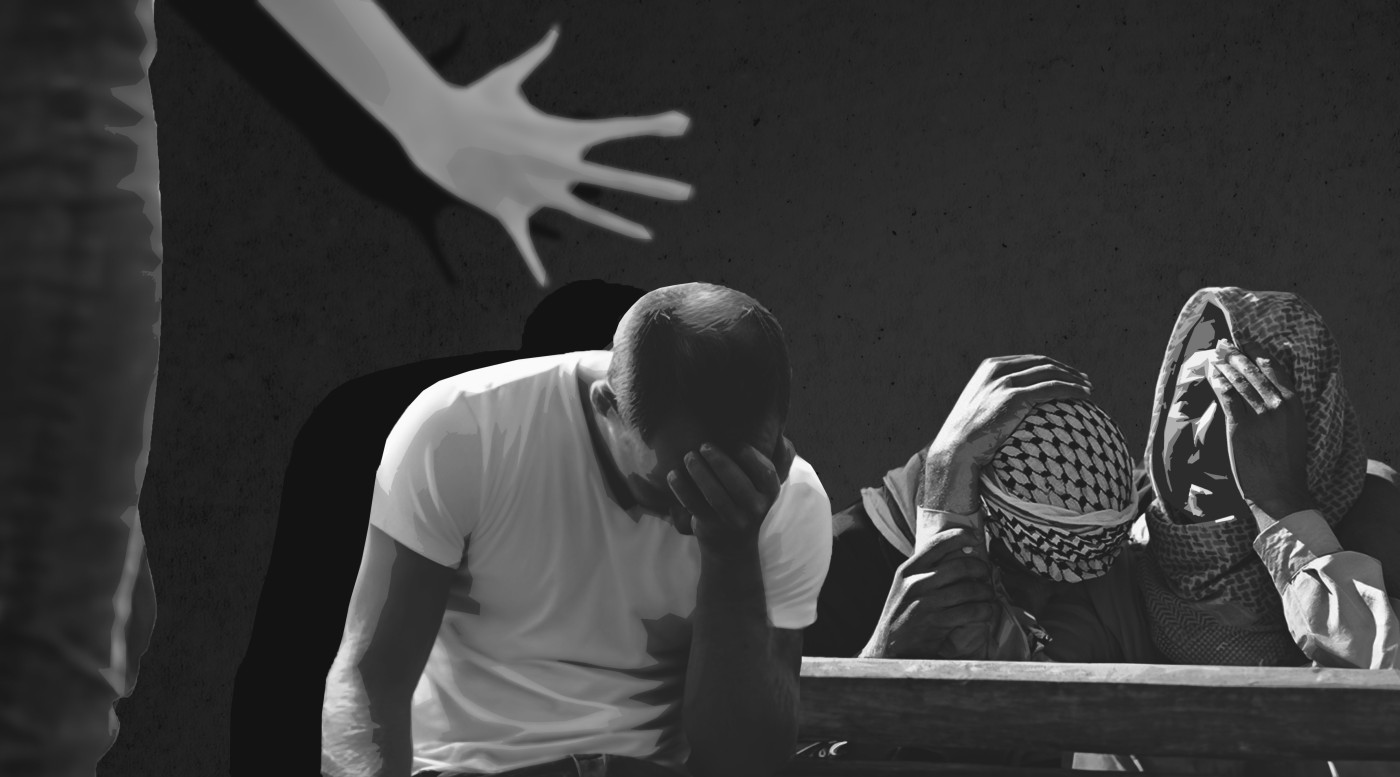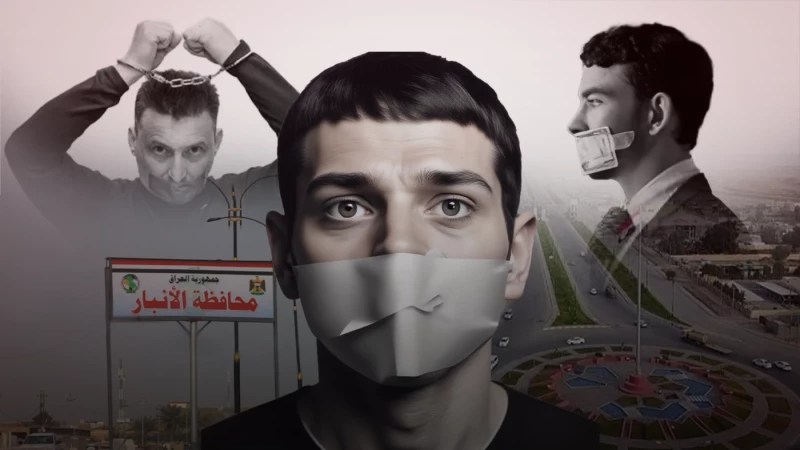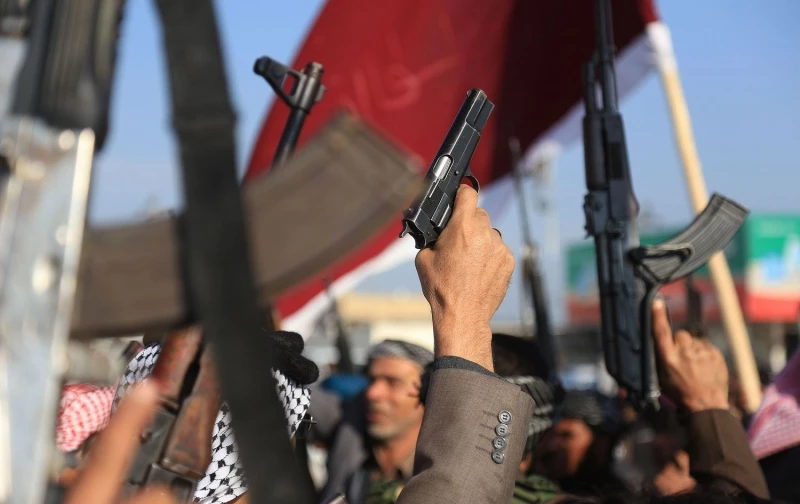BAGHDAD, Iraq - Violence, abuse, and worsening marital disputes prompted an Iraqi man who asked to be referred to as “Jassim” to divorce his wife after two years of living together in the Iraqi capital, he told The New Region.
Jassim asked that this fictitious name be used to enable him to speak freely. He said that what happened to him was a disgrace that will “follow him for the rest of his life” and that he is afraid of ever getting married again.
The 28-year-old recounted what led up to the violence.
“After a love affair lasting over a year and rejection from my ex-wife’s family, I married her anyway and expected that a happy life would follow.”
Only six months passed, however, before disagreements between him and his wife became more serious and the gap wider.
It all started, he said, when he was stuck at home all day as part of measures imposed during the COVID epidemic, which started in 2020. Then he began delaying his return home until midnight when the restrictions were lifted.
His wife meanwhile had started complaining about the cramped nature of the home the couple shared with Jassim’s parents and other family members.
‘Entering home was like stepping into hell’
The young man then decided to move to a separate home to save his marriage, though the home was still close to his family in Baghdad.
However, the disputes ended up degenerating from verbal altercations into serious beatings from his wife.
“The violence reached unbearable stages. Entering the house felt like stepping into hell for me,” Jassim said, adding that “we had reached a stage that was very difficult to move forward from. I thank God that I did not bring a child into the world in that period.”
Jassim went on to say that reports of domestic crimes and murders on social media began to disturb him.
“I started imagining I might be the next victim,” he said. “So I decided to separate without telling my family and those close to me about what had happened, out of fear of what might happen due to the customs and traditions in working-class areas.”
Jassim said that the memory of “those difficult moments stay with me. I keep thinking about them until I get depressed and scared about what will happen in the future.”
“More than once my family asked me about the real reason for the separation but I did not answer,” he said.
‘Around 50’ cases of violence against men every month
Though women constitute by far the largest share of victims of physical violence and murder committed by intimate partners, would-be suitors and family members both in Iraq and across the rest of the world, men can also fall victim to violence within their homes.
In 2020, when the problems between Jassim and his wife began, the Iraqi interior ministry recorded 15,000 cases of domestic violence.
Of them, 9% were attacks by wives on their husbands, 7% assaults between siblings, and 10% attacks committed by children against their fathers.
In early November, the interior ministry recorded 27 cases of violence against men for the entire country except for the Kurdistan Region of Iraq.
These figures were provided by Director of the Public Relations Department of the Ministry’s Relations and Media Department Abdul Hafez Hadi Al-Jubouri in an interview with The New Region on November 18.
It could thus be estimated that around 50 cases of violence are recorded against men every month and – assuming this number is representative – then about 600 cases per year.
Jubouri noted that “the community police directorate receives many complaints related to men being subjected to violence by their wives, children, or other relatives. These complaints are received via the community police hotline, 497, and via the email address appearing on the Iraqi community police Facebook page”.
"The community police deal confidentially with the information they receive, which is mostly related to social and family problems, “ he added. “Those making the complaints ask that their problems be solved in a peaceful and confidential manner without resorting to courts.”
He stressed that this was due to “both the sensitivity of the cases and the nature of our society, and in order to prevent serious repercussions that could threaten the victims’ lives and the security of the community as a whole.”
The interior ministry official noted that “we receive a number of reports and complaints from the victim’s relatives, neighbors, or friends of the community police”, noting that they then “gather information and investigate” the claims.
After that, he said, they try to “find the root of the problem and take all necessary measures against the perpetrators of violence while also providing psychological and moral support to the victims.”
The officer noted that “there are cases of physical, verbal, and psychological cases of violence. Due to the masculine nature of our society, cases of violence against men are unusual and the victims are reluctant to disclose that it has happened to them.”
He said that this was due both to “societal reasons and out of a fear of the stigma attached to men seen as being under women’s control or authority.”
‘Malicious cases’ most of those reaching courts, says expert
Mohammad Jumaa, a legal affairs researcher focusing on family affairs, said in a November 15 interview with The New Region that “violence against men exists in Iraqi society but the vast majority of cases never reach the courts”.
He added that “most of those that do reach the courts and police stations are malicious complaints”.
“Due to societal conditions and restrictions, men suffering violence from women do not file complaints against them in Iraq,” he added, “since it is considered shameful for a Middle Eastern man to raise similar issues in front of strangers.”
“Some of the complaints of violence that reach the courts are real, but most of them are not,” Jumaa said.
When a wife files a case against her husband for being violent towards her, her husband often files a counterclaim against her in order to get her to drop the charges, he said.
The legal affairs researcher noted that violence in general – whether against men or women – has serious repercussions on children, who are forced up in an unstable family environment.
Jumaa stressed the need to pass and enact a national law against domestic violence, “ to protect the family from all forms of violence, whether committed by the husband or wife or by other family members.”
In 2020, during the term of former Prime Minister Mustafa al-Kadhimi, a draft law against domestic violence was approved by the Council of Ministers and sent to the Council of Representatives. However, it has since then been stuck in the halls of the country’s parliament.
‘Kurdistan tops rankings’
Strategic Center for Human Rights director Fadel al-Gharawi told The New Region in an interview on November 15 that violence against men has increased in the recent period and that it needs to be addressed.
“Violence against men can be committed in many ways ranging from the use of sharp objects and physical violence to verbal violence and insulting them,” Gharawi said, adding that even “children commit violence against their fathers.”
He noted that “cases of violence against men have been concentrated in the Kurdistan Region,” due to economic, social, psychological and security factors”.
Both a lack of positive examples of how to create a healthy family environment and an inappropriate use of social media sites have contributed this rise in cases, he added.
The head of the Kurdistan Men’s Union, Ali Burhan, said in statements to the media earlier this year that the total number of cases of domestic violence against men in the Kurdistan Region of Iraq and the Kirkuk province stood at 336 cases in the first 6 months of the year.
He added that “39 men committed suicide in Kurdistan during the current year” and that “5 husbands were killed by their wives with the help of a third party”.


 Facebook
Facebook
 LinkedIn
LinkedIn
 Telegram
Telegram
 X
X



